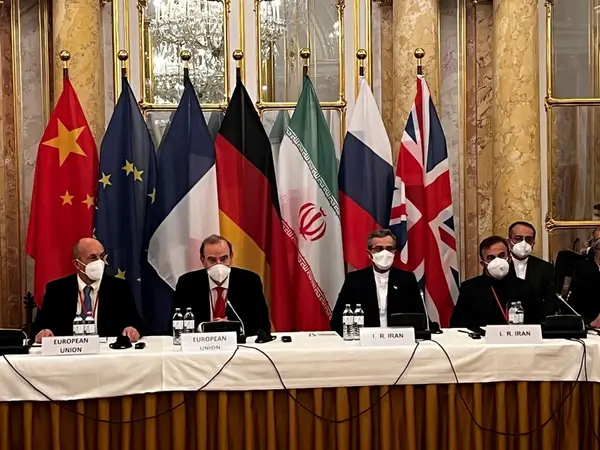Two former Iranian diplomats speaking to local media have urged the government to show flexibility in nuclear talks, to help remove United States sanctions.
Mostafa Alaei, a former senior Iranian diplomat, says reviving the 2015 nuclear deal will not solve all of Iran's problems with the West, while the failure of the previous round of talks between Iran and world powers has left a dramatic impact on Iran's ailing economy.
Alaei who was speaking to Etemad newspaper in Tehran on Wednesday said that "Iran's case is no longer a simple political or economic issue, it is a case impacting international security."
Iran should show flexibility
The former diplomat suggested that if the West offers concessions in the next round of talks in Vienna, Iran should show flexibility. "International negotiations are about give and take," he pointed out.
Alaei, who served in various positions at the Iranian Foreign Ministry and was a member of the Iranian delegation to the United Nations and Iran's ambassador to Venezuela, believes that "although the JCPOA [Joint Comprehensive Plan of Action] was an agreement made under pressure, it is still a brilliant document in Iran's political history."
He said Iran should have not allowed Iran-o-phobia to spread all over the world. Suggesting that what Iran needs at this point is a change to its approach in foreign policy, Alaei said, "It is wrong to think that we should always live under pressure. Sometimes we need to sacrifice the government's prestige to save national interests."
He further stressed: "We should come to know the true threats in our foreign policy, not the imaginary threats that are the products of illusion."
Next round of talks “fragile”
Meanwhile, another seasoned diplomat Fereidoun Majlesi said in an interview with Iran Diplomacy website, close to the Foreign Ministry, that the next round of talks starting in Vienna on Thursday is the most fragile round of the nuclear negotiations. However, Majlesi added that it is unlikely the talks would come to a halt.
"One cannot say with certainty that the next round of talks is going to fail like the previous round, but it is undoubtedly going to be the most fragile round of the nuclear talks because the Raisi administration is insisting on its suggested package which has already been ruled out by both Europeans and Americans," he reiterated.
We cannot deny the impact of sanctions
President Raisi and his administration deny the impact of a deadlock on the economy and their reaction to the falling value of the Iranian currency has been an unjustifiable punishment for businesses and the people. Majlesi said, "the government is denying the realities although it is well aware of the situation in the country. The outcome of this denial is that we should wait for another shock to the markets as a result of a possible failure of the next round of talks."
Majlesi stressed that "Like many other countries, Iran's economy is dependent on the US dollar. This has nothing to do with who is in power in Iran. The economy has been dependent on the rate of exchange for US dollar since the 1979 revolution and even before that. So, you cannot deny the impact of sanctions. Rising prices are not manipulated by domestic and foreign enemies as Iranian politicians say. You cannot justify it with the illusion of a conspiracy. This is a reality that leaves its impact on the people's livelihood."
Majlesi further warned that denying the problem will not serve Raisi's interests as the gap between his administration and the people will further widen because of this denial.
Counting on Russia
Speaking about upcoming talks, Majlesi said: "Iranian negotiators' new suggestions that undermined the outcomes of negotiations [Nov. 29-Dec. 3] have practically put an end to dialogue. The next round of the talks is going to start in a non-constructive and negative atmosphere.
Majlesi warned that "Iran is not powerful enough to change the rhetoric and agenda of the negotiations. He pointed out that Iran is counting on Russia's role as a mediator. But the strong coherence among Western negotiators will force Russia and China to follow the westerners' lead. This raises the likelihood of the collapse of the next round of talks.
"On the other hand, like all other countries, Russia's main concern is to serve its own interests and Iran's reliance on Moscow will increase Russia's influence and power in Vienna so that it might want to take advantage of the Iran card in front of US and European sides particularly given the developments in Ukraine.
